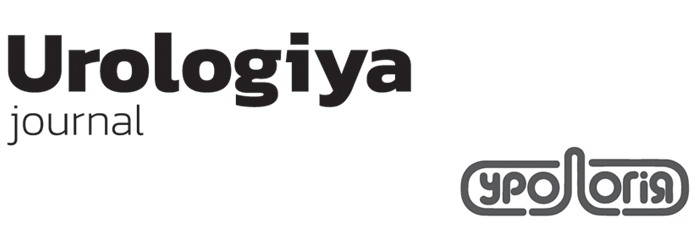V.S. Fedevych
Prediction of the efficacy of intravesical BCG therapy in patients with bladder cancer based on the level of vascular endothelial growth factor, tumor necrosis factor α and β
In our study, we studied the effectiveness of the use of biomarker levels of vascular endothelial growth factor (VEGF), tumor necrosis factor (TNF)-a and TNF-b in the urine of patients with bladder cancer (BC) to predict the effectiveness of intravesical BCG therapy at its early stage. The study included 35 adult patients with BC exclusively of the T1N0M0 stage, who underwent transurethral resection, the average age of which was 58.3±6.1 years.
The mean values of the VEGF in the urine of patients with various degrees of neoplasia (G1, G2, G3) in the main group and in the comparison group did not have statistically significant differences between themselves before treatment and 6 weeks after (p>0.05). Thus, the determination of the levels of VEGF in urine did not demonstrate the appropriateness of their use in predicting the effectiveness of intravesical adjuvant BCG therapy in patients with BC stage T1N0M0.
An increase in TNF-a in adjuvant intravesical BCG therapy in patients with BC stage T1N0M0 is associated with a positive therapeutic effect, which in our study was expressed in the absence of signs of disease recurrence. At the same time, the absence of an increase in this molecular marker 6 weeks after the initiation of BCG-inducing therapy indicated an insufficient inflammatory response (or its absence) and, as a consequence, a relapsing course of the disease.
Like previously studied markers, the mean values of TNF-b in the urine of patients with various degrees of neoplasia (G1, G2, G3) in the main group and in the comparison group did not have statistically significant differences between themselves before treatment and 6 weeks after him (p> 0.05). The average level of the promoter of the inflammatory response of TNF-b increased at the 6th week after BCG instillation was closely associated with the positive therapeutic effect of inducing BCG therapy in patients with stage T1N0M0 RMP.
Thus, the determination of molecular markers of VEGF, TNF-a and TNF-b in the urine of patients with bladder cancer after administration of intravesical BCG therapy can serve as the basis for the development of new methods of treatment and evaluation of their effectiveness.

